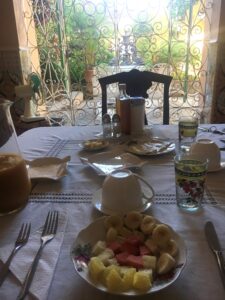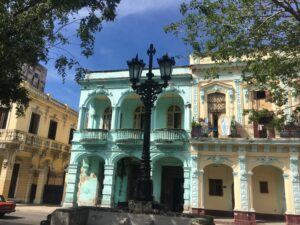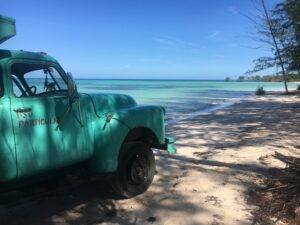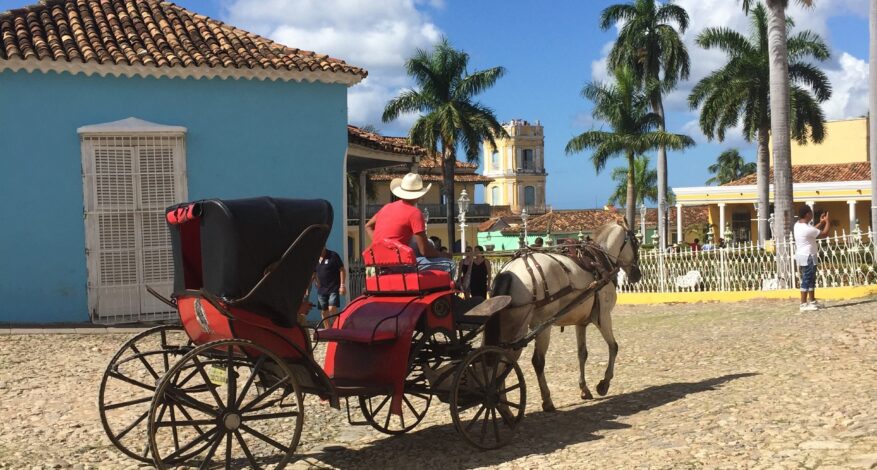DOING IT THE CUBAN WAY
What is sustainable tourism?
According to the World Tourism Organization, sustainable tourism is “Tourism that takes full account of its current and future economic, social and environmental impacts, addressing the needs of visitors, the industry, the environment, and host communities”. Sustainable tourism is a way of traveling that not only reduces the negative impact on the visited places to the minimum and but also impacts on society positively. When we use the term sustainable travel we talk about three main areas: human welfare, animal welfare, and nature preservation. Sustainable tourism, also called ecological tourism, refers to tourism that is governed by the principles of sustainability, that is to say, that considers the effects it has at the moment of traveling and in the future in order to meet the needs of the visitors and generate income and employment for the locals while having only a small impact on the social and physical environment that receives the tourists. There is another term that comes from and is related to sustainable tourism: solidarity tourism. This kind of tourism is a way of traveling that is based on the respect the travelers must have for the places they visit and the people who live there. In addition, these tourists contribute to the economy of the place as they use local accommodations managed by the members of that community, they visit and collaborate within solidarity projects that are developed in the area and they purchase and use local products.
“Casa particular”: the real Cuban experience
 There are two broad categories of accommodation for tourists in Cuba: hotels, all state-run and all quite expensive, and Casas particulares. In Spanish, it means “private houses”, because they are managed privately, they can be compared to our bed & breakfasts. The owners have a special authorization to host tourists in their home, who are usually accommodated in rooms with private bathrooms in a house where a Cuban family lives. Staying in a casa particular is, by far, the best way to do things the Cuban way. The money you spend in a casa particular goes to the family and will be reinvested in their community. Therefore, this is the simplest way to do some sustainable tourism in Cuba. Living the “casa particular” experience allows you to come into direct contact with the Cuban real world and it gives you the chance to discuss different ideas and common interests with the locals. It is a new way of being a tourist; a better one, we would say. There is nothing wrong with the classic relaxing holiday in the resorts, but we find that being in contact with the locals gives you the opportunity to learn a lot and fully experience the culture of the country and, at the same time, you will be supporting the local community.
There are two broad categories of accommodation for tourists in Cuba: hotels, all state-run and all quite expensive, and Casas particulares. In Spanish, it means “private houses”, because they are managed privately, they can be compared to our bed & breakfasts. The owners have a special authorization to host tourists in their home, who are usually accommodated in rooms with private bathrooms in a house where a Cuban family lives. Staying in a casa particular is, by far, the best way to do things the Cuban way. The money you spend in a casa particular goes to the family and will be reinvested in their community. Therefore, this is the simplest way to do some sustainable tourism in Cuba. Living the “casa particular” experience allows you to come into direct contact with the Cuban real world and it gives you the chance to discuss different ideas and common interests with the locals. It is a new way of being a tourist; a better one, we would say. There is nothing wrong with the classic relaxing holiday in the resorts, but we find that being in contact with the locals gives you the opportunity to learn a lot and fully experience the culture of the country and, at the same time, you will be supporting the local community.
Why is it interesting to stay in “Casas particulares” in Cuba?
 This is a way to help Cubans economically. As they do not have experienced history in terms of doing business and because the management of their money has always been a responsibility of a third party (the government, in this case), they are particularly candid people when it comes to basic economic procedures. So, staying in private homes helps not only in terms of income, but also encourages them to keep on with other entrepreneurial initiatives, in many other sectors. On the other hand, it is a huge opportunity to get to know the country from the perspective of those who live there, to witness how a Cuban house works from the inside. Cubans are experts in making you feel like family, in less than an hour.
This is a way to help Cubans economically. As they do not have experienced history in terms of doing business and because the management of their money has always been a responsibility of a third party (the government, in this case), they are particularly candid people when it comes to basic economic procedures. So, staying in private homes helps not only in terms of income, but also encourages them to keep on with other entrepreneurial initiatives, in many other sectors. On the other hand, it is a huge opportunity to get to know the country from the perspective of those who live there, to witness how a Cuban house works from the inside. Cubans are experts in making you feel like family, in less than an hour.
 They go out of their way to help foreigners have a positive experience and show generosity that manages to make up for all the shortcomings that the country has at other levels. They know well how important tourism is for their island and do everything to put guests at their ease, without ever being intrusive and helping them to have the safest and most peaceful journey possible. In fact, every owner gives you tips on what to visit and where to eat (especially local and cheaper places). The evenings spent chatting with them during dinner or the mornings at breakfast are all moments of exchange of ideas, cultures, and opinions.
They go out of their way to help foreigners have a positive experience and show generosity that manages to make up for all the shortcomings that the country has at other levels. They know well how important tourism is for their island and do everything to put guests at their ease, without ever being intrusive and helping them to have the safest and most peaceful journey possible. In fact, every owner gives you tips on what to visit and where to eat (especially local and cheaper places). The evenings spent chatting with them during dinner or the mornings at breakfast are all moments of exchange of ideas, cultures, and opinions.

